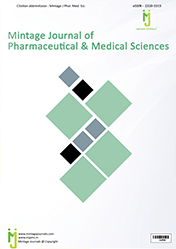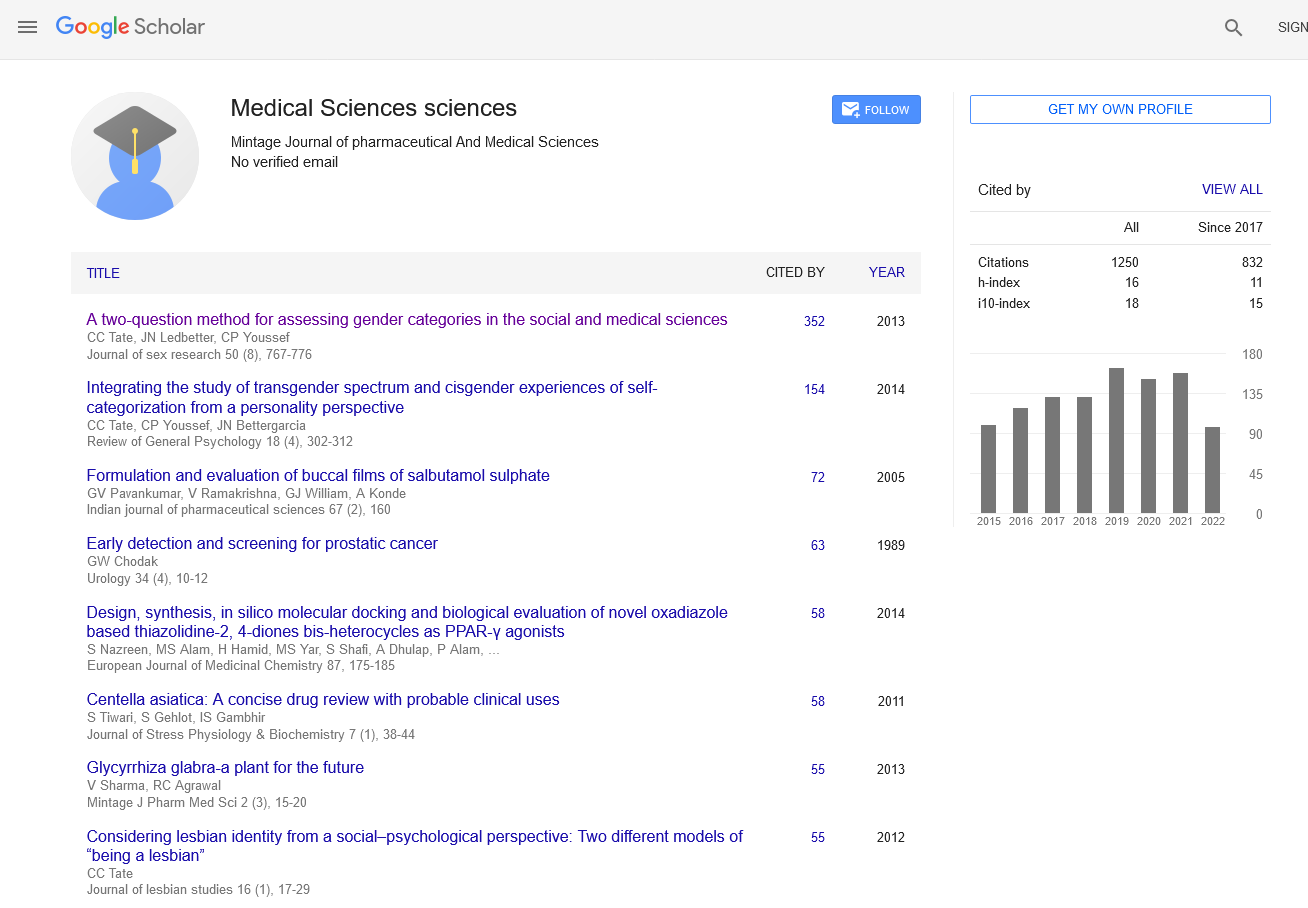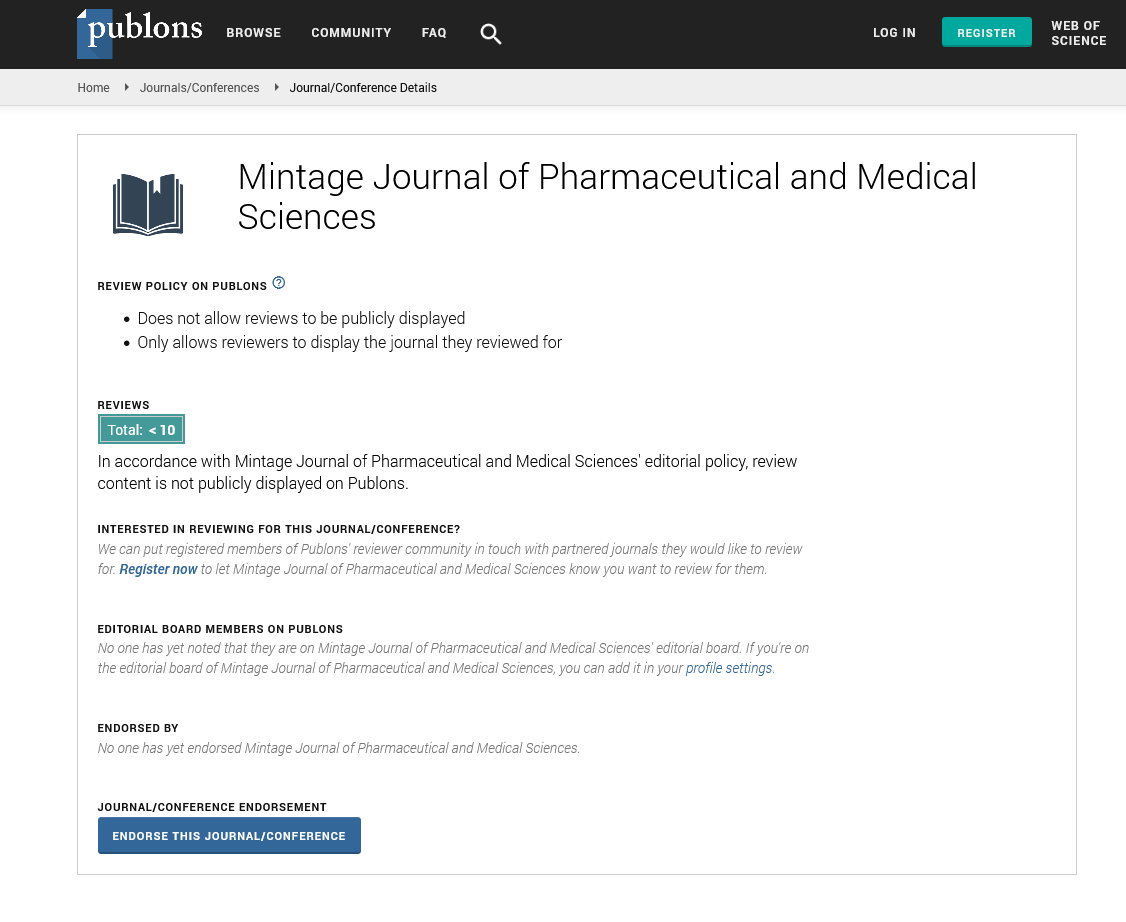Abstract
PHENOLIC PROFILE, ANTIOXIDANT AND ANTIMICROBIAL ACTIVITIES FROM THEApiaceaeFAMILY (DRY SEEDS)
Author(s): Valentina Lubomirova Christova-Bagdassarian1, Kristine Samvel Bagdassarian2andMaria Stefanova Atanassova
Objective: In the present study, a comparative evaluation of the phenolic compounds antioxidant capacity and antibacterial activity toseveral kinds of seeds from the Apiacea family, to which belong: Foeniculum vulgare (Fennel), Anethum graveolens (Dill), Pimpinella anisum (Anise), Carum carvi (Caraway) and Coriandrum sativum (Coriander) were carried out.Methods:The total phenolic content of seeds wasmeasured spectrophotometrically by using the Folin-Ciocalteu assay, the total flavonoids was measured spectrophotometrically by using the aluminum chloride colorimetric. Antioxidant capacity wasanalysed by 2,2-Diphenyl-1-picrylhydrazyl (DPPH) radical scavenging effect of the seeds and was determined also spectrophotometrically. Antibacterial activity wasanalysed by ISO standards.Results:The total phenolic and flavonoid contents of the Foeniculum vulgare (Fennel) varied between 115.96 mg GAE/100g and 68.10 mg CE/100g .The Coriandrum sativum (Coriander) content is lower (from 17.04 mg GAE/100g to 11.10 mg CE/100g, respecively). The highest radical scavanging effect was observed in the Foeniculum vulgare (Fennel) withIC50 of 113.19 ml/L. In our study, themethanol extract of seeds didn’t have any antimicrobial activity.Conclusions: An original data for total phenolic and total flavonoid contents are present in this study. They are a basis for assessment of the role of Apiaceae family dry seeds against free radicals effect and antibacterial activity. The results showthat methanolic extract has the highest of total phenolic and total flavonoid contents, high potential of antioxidant activity of dry seeds from Apiaceae family, to which belong: Fennel (Foeniculum vulgare), Dill (Anethum graveolens), Anise (Pimpinella anisum), Caraway (Carum carvi) and Coriander (Coriandrum sativum). From all results, the solvent extracts of dry seeds are rich in phytochemical contents, which possessed high antioxidant and antimicrobial activities. Therefore the data found in this work might be used for further study of extracts of dry seeds from Apiaceae family on various applications such as health supplement and pharmaceutical benefits

ISSN: 2320-3315
ICV :81.58

